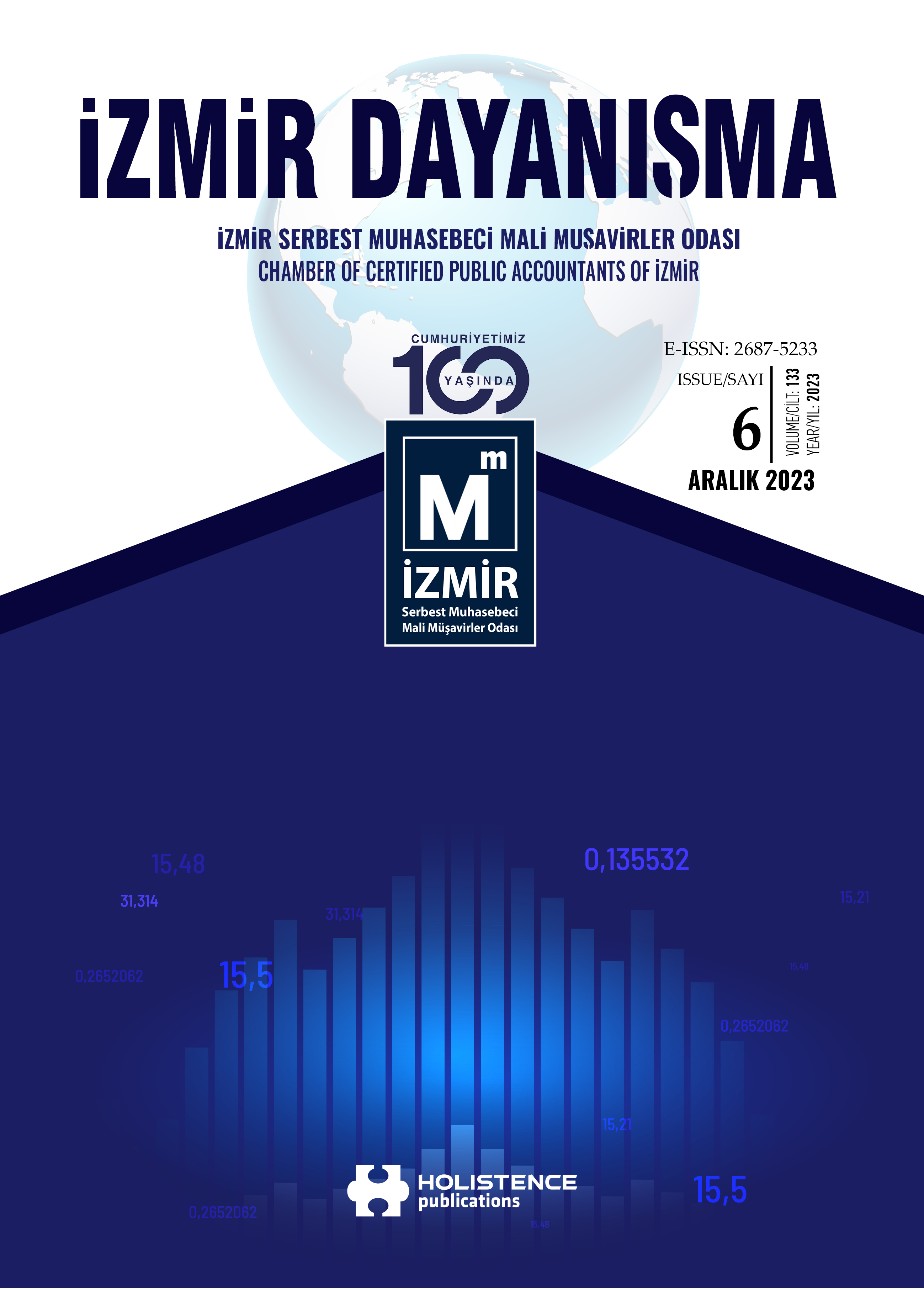FİNANSAL RAPORLAMANIN ROLÜ VE NİTELİKSEL ÖZELLİKLERİ AÇISINDAN DEĞERLENDİRİLMESİ
Özet
Küreselleşen dünyada şirketler ulusal ve uluslararası piyasalarda faaliyet göstermektedir. Bu şartlar altında kurumsal yönetim anlayışının benimsenmesi, şirketlerin ilgili piyasalarda faaliyet gösterebilmeleri ve varlıklarını sürdürebilmeleri için önem arz etmektedir. Kurumsal yönetim bir takım temel ilkelerden oluşmakta ve bu temel ilkelerin yerine getirilebilmesi açısından finansal bilgilerin raporlanması ve finansal olmayan bilgilerle desteklenmesi önem arz etmektedir. Bu bağlamda, finansal raporlamanın rolünü açıklamak ve finansal raporların sahip olması beklenen niteliksel özellikleri açısından değerlendirmek çalışmanın temel amacı olarak ele alınmıştır. Günümüzde zorunlu ve gönüllü olmak üzere çeşitli raporlamalar yapılmaktadır. Bu çalışma ışığında, finansal raporların sundukları finansal veriler ile kullanıcılarının alacağı kararlara etkileri açısından en öne çıkan raporlama uygulamalarından olduğu ve niteliksel özelliklerin bir bütün olarak değerlendirilmesi gerektiği ortaya konulmuştur.
İndirmeler
Referanslar
ACCA. (2018), “Tenets of Good Corporate Reporting”.http://www.accaglobal.com/content/dam/ACCA_Global/professionalinsights/Tenets-of-corporate-reporting/pi-tenets-good-corporate-reporting.pdf, (05.08.2023).
Armstrong, C.S., Guay, W.R., Mehran, H. ve Weber J.P., (2016), “The Role of Financial Reporting and Transparency in Corporate Governance”, Frbny Economic Policy Review, 22(1), s. 107-128.
Bushman R.M., ve Smith A.J. (2003), “Transparency, Financial Accounting Information, and Corporate Governance”, Economic Policy Review, 9(1), s. 65-87.
Bushman, R.M., Chen, Q., Engel, E. ve Smith, A.J. (2004), “Financial Accounting Information, Organizational Complexity and Corporate Governance Systems”, Journal of Accounting and Economics, 37(2), s. 167-201.
Eccles, R.G. ve Saltzman, D., (2011), “Achieving Sustainability through Integrated Reporting”, Stanford Social Innovation Review, 9(3), s. 56-61.
Eccles, R.G. ve Serafeim, G., (2011), “Leading and Lagging Countries in Contributing to a Sustainable Society”, Harvard Business School Working Knowledge, Op-ed.
Eccles, R.G. ve Spiesshofer, B., (2015), “Integrated Reporting for a ReImagined Capitalism”, Harvard Business School General Management Unit Working Paper No. 16-032.https://www.hbs.edu/faculty/Publication%20Files/16-032_3860cfaaebd3-4d7e-ac9a-53272ca8cc2d.pdf, (30.10.2023).
Financial Accounting Standards Board (FASB), (2008), “Financial Accounting Series, Statement of Financial Accounting Standards No. 1570-100: Exposure Draft on an Improved Conceptual Framework for Financial Reporting”, Norwalk.
Herath, S. ve Albarqi, N. (2017). Financial Reporting Quality: A Literature Review. Journal of Business Management and Commerce. Vol. 2. . 1-14.
Hoque, M. E., (2017), “Why Company Should Adopt Integrated Reporting?”, International Journal of Economics and Financial Issues, 7(1), s. 241–248.
Horton, J., Serafeim, G. ve Serafeim, I., (2013), “Does Mandatory IFRS Adoption Improve the Information Environment?”, Contemporary Accounting Research, 30(1), 388-423.
International Accounting Standards Board (IASB), (2008), ”Exposure Draft on an improved Conceptual Framework for Financial Reporting: The Objective of Financial Reporting and Qualitative Characteristics of Decision-useful Financial Reporting Information”, London.
Islam, S.M.M., (2017), “Corporate Reporting Concept and the Emergence of Nonfinancial Information Reporting: A Literature Review”, Research Journal of Finance and Accounting, 8(8), s. 49-59.
Jensen, M.C. (1993), “The Modern Industrial Revolution, Exit, and the Failure of Internal Control Systems”, The Journal of Finance, 48(3), s. 831-880.
OECD, (2004), “OECD Principles of Corporate Governance”, Paris: OECD Publishing.
OECD, (2015), “G20/OECD Principles of Corporate Governance”, Paris: OECD Publishing.
Rupley K.H., Brown D. ve Marshall S., (2017), “Evolution of Corporate Reporting: From Stand-Alone Corporate Social Responsibility Reporting to Integrated Reporting”, Research in Accounting Regulation, 29(2), s. 172-176.
Velte, P. ve Stawinoga, M., (2017), “Integrated reporting: The current state of empirical research, limitations and future research implications”, Journal of Management Control, 28(3), s. 275-320.



